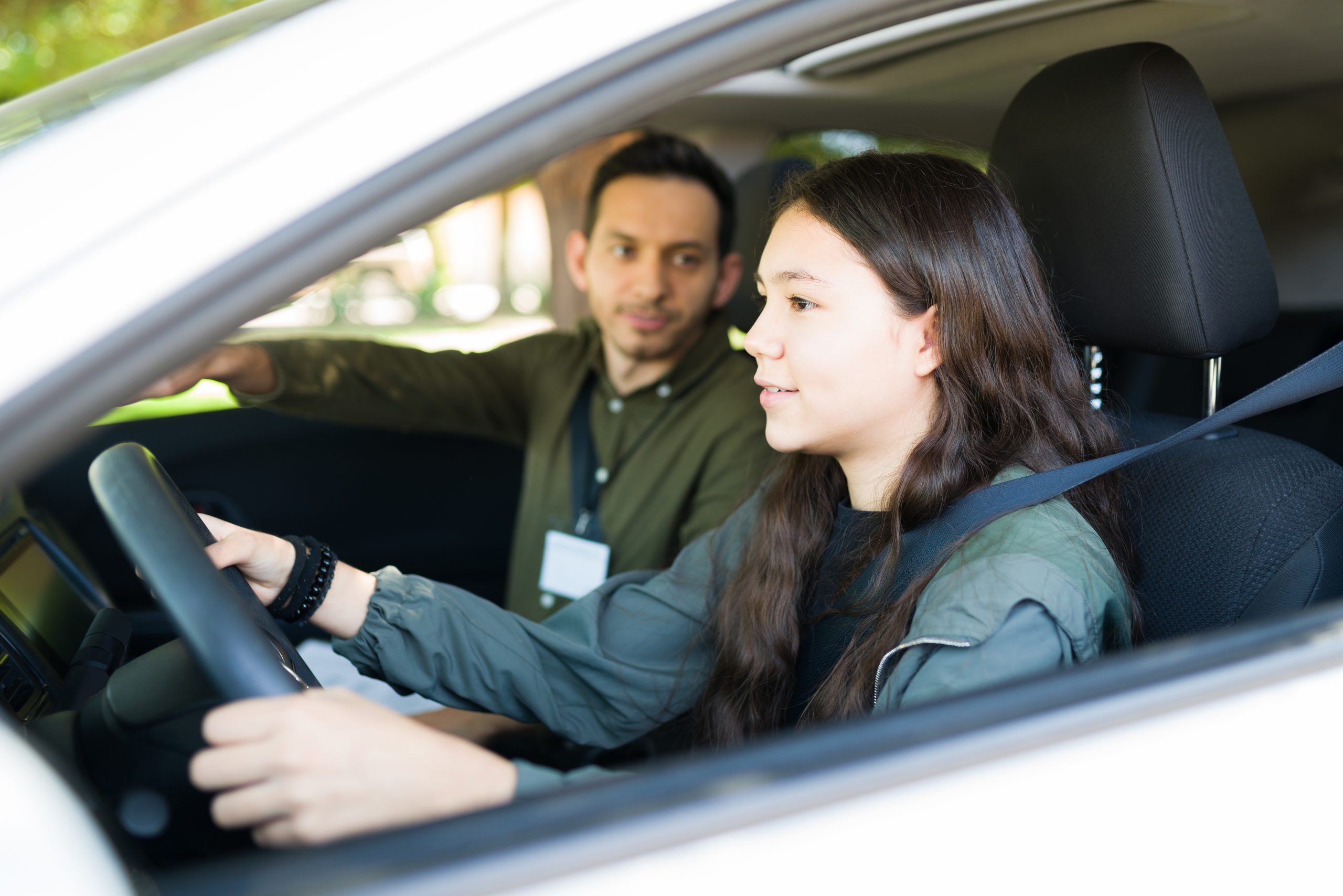
Keeping your teen drivers safe on the road
In most cases, a parent has very good reasons to be nervous about handing the keys to the family car over to their teen. Unfortunately, studies have shown that teens are at a higher risk of getting into a motor vehicle traffic crash. These same studies show that teens between the ages of sixteen and nineteen are three times more likely to be involved in fatal car accidents, compared to motorists that are over the age of twenty.
The Risks of An Inexperienced Driver and What You Can Do to Help
As a parent, you may have serious concerns about your child driving and want to learn how to keep your teen safe. Always wearing their seat belt is just not enough to prevent a fatal crash. Keeping teens safe on the road is possible if you work with them and discuss safe driving habits, common driver errors, and teach them how to handle high-risk driving situations.
Here, you’ll find driving tips that you can use to instill safer driving habits and to better prepare your child for life on the road.
Drive with Your Teen and Help them Safely Gain More Experience
According to the Centers for Disease Control and Prevention, a lack of experience behind the wheel is one of the leading causes of auto accidents among teens. Your teen needs plenty of practice to become a good driver. However, they shouldn't do it alone. Instead, you or another adult should provide supervision and guidance until they become a safe and confident driver. Give your child the chance to drive with you in the vehicle in a variety of situations and conditions, including night driving, freeway driving, rush hour traffic driving, and other intense situations. Spending time with your teen as they drive and guiding them through these types of difficult situations can prepare them to face these situations alone.
Enroll Your Child in a Driver’s Education Program to Teach Them Safe Driving Practices
Many teens in California take a basic driver education class, however, basic driver training courses often aren’t designed to help a teen to become a more confident and safer driver. If you have a teen with limited driving experience, you can enroll them in an additional driver’s educational course, which can help them develop proper defensive driving techniques.
Talk to Your Teen About the Dangers of Distracted Driving
In California, 18% of all fatal accidents are caused by distracted driving. According to one study, the most common forms of distracted driving are:
- Grooming
- Texting
- Dancing or singing to music
- Searching the internet
- Talking on the phone
- Eating
- Reaching for an object
- Interacting with a passenger
You must speak with your teen concerning the importance of focusing on the road when they’re driving and how it can prevent a distracted driving crash.
Implement Rules and Stick to Them
Set some ground rules.
Enforce rules concerning texting or talking on their phone while driving. Request that they turn their phone on when they’re driving and make sure that you set a good example and avoid using your phone in the car as well. Give them set hours that they can use the car. This type of driving curfew is very important, especially during their first year of driving.
Use GPS Tracking Apps
A cell phone can make driving dangerous for your child, however, you can put their phone to good use and enable a GPS tracking device on their phone. This allows you to track your child’s location when they’re driving. Many parents have found that the ability to track their teens as they drive has helped to encourage safer driving. It will also give you peace of mind, knowing where they are at all times.
Do Not Allow Nighttime Driving
Driving in the dark can be more challenging than driving during the day, so it's definitely a potentially dangerous driving situation that you want your teen to avoid.
A driver will have less visibility and may get easily distracted by the glare from the headlights of approaching vehicles. Driving well at night requires plenty of practice. However, until your teen gets the practice they need to drive well at night, you should not allow them to do so unless you’re in the vehicle. Fortunately, California law does not allow teens to drive after 11 pm at night or before 5 am.
Don’t Allow Your Child to Drive with Their Friends in the Vehicle
When your teen has friends in the vehicle with them, they are at a higher risk of getting into an accident.
When your child drives with teen passengers in the car, they can easily become distracted. They are also more likely to engage in risky behavior such as driving over the speed limit, driving recklessly, and other types of dangerous driving behaviors.
Fortunately, state laws for teen drivers does not allow teens under the age of eighteen to drive with passengers under the age of twenty, unless someone over the age of twenty-five is in the vehicle.
How Following Safe Driving Practices Can Prevent a Minor or Fatal Motor Vehicle Traffic Accident
While your teen may think they're prepared for the road, it's important that you go over:
- The drowsy driving crash risk
- The observance of speed limits
- How to handle dangerous situations, such as loss of vehicle control
- The effects of drugged driving/impaired driving
- How a distracted driver can cause an accident
- How they can stay safe on the road.
Setting ground rules is important. But you must enforce them. If they cannot follow your rules, then there must be consequences, such as revoking their driving privileges.
Ensuring your teen is aware of the dangers and knows how to drive defensively, stays off the road at night, can identify a dangerous driver, and can handle a high-risk driving situation, can help prevent your child from getting into an accident and sustaining motor vehicle injuries or worse.
Contact MVP Accident Attorneys Today
California roads can be a dangerous place for an inexperienced driver.
If you or your teen were involved in a motor vehicle crash, contact MVP Accident Attorneys today to schedule a free, no-obligation consultation. You can meet with an attorney one-on-one to discuss your case and learn about your legal rights and options. We’re here to help. We will listen to your concerns and answer all of your questions and help you make the best choice, moving forward with your case. Don’t put off obtaining legal help now. Schedule a free consultation today.
Author

Brett Sachs
Brett S. Sachs graduated from Michigan State University College of Law with Cum Laude Honors. While attending Michigan State, Brett was awarded for his service in the Michigan State University College of Law Civil Rights Clinic, where he represented prisoners of the Michigan Department of Corrections from injustices brought upon them. Learn more.
Top-Rated Lawyers

Lizbhett Rodriguez
Jason Acosta

When You’ve Been Injured
Personal Injury Law

